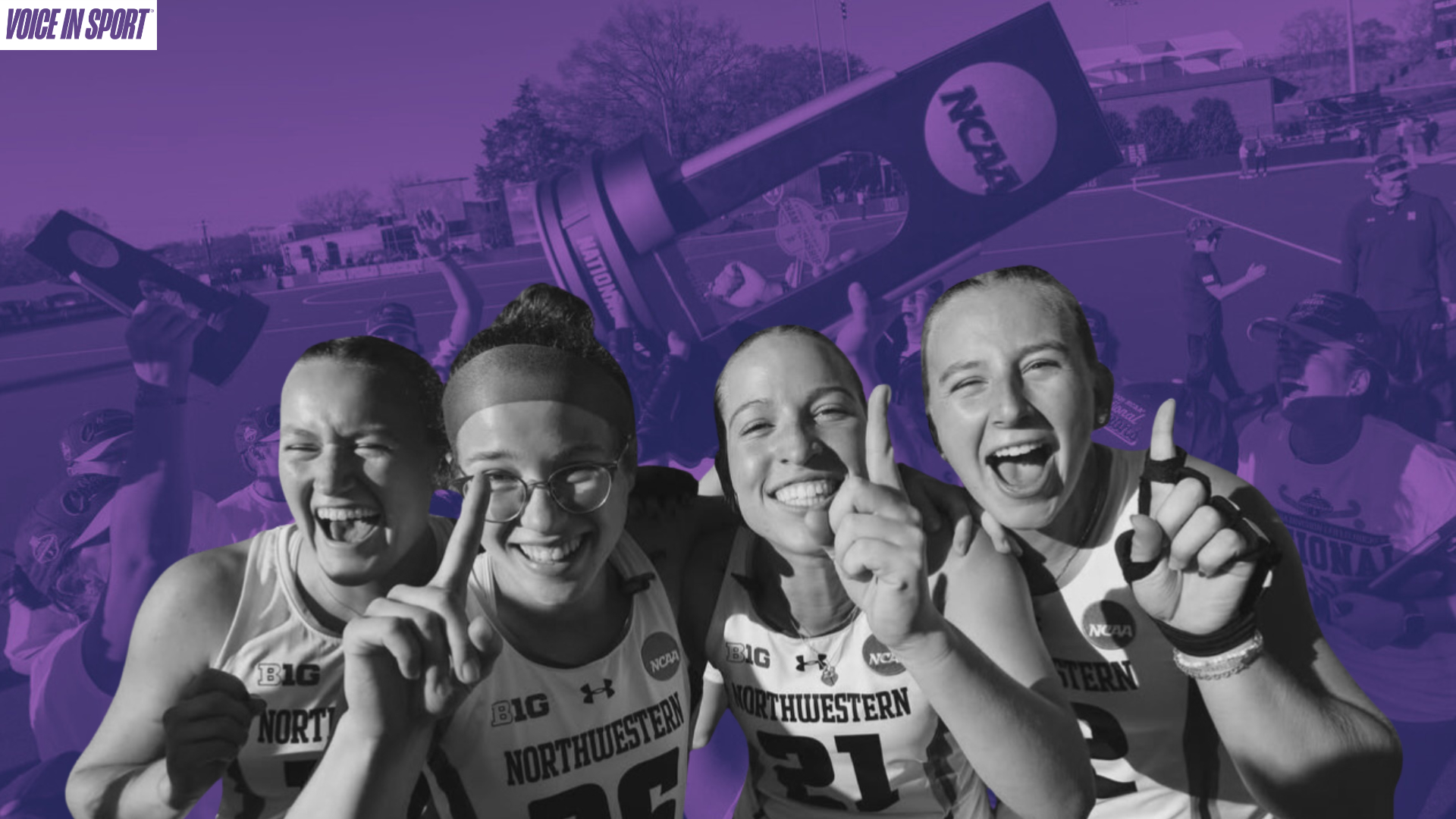In the 70th minute of a grueling double-overtime game against Princeton, Ilse Tromp, assisted by Ashley Sessa and Maddie Zimmer, smashed the ball into the back of the net. The Wildcats stormed onto the field to a mob of hugs and celebration.
Soon after, they hoisted their golden NCAA trophies to the tune of Queen’s "We are the Champions." The Northwestern Wildcats are NCAA Field Hockey champions for the second year in a row, their third title in the past five years.
But this streak of success isn’t luck. It's built on a culture of excellence and continued support for women athletes, anchored in the leadership of Coach Tracey Fuchs.
After a difficult period from 1983 to 2014 of only 12 NCAA tournament appearances, Coach Fuchs took over the team, eventually becoming the winningest head coach in Northwestern field hockey history. Fuchs was no stranger to success. She won an NCAA championship in college as a player, and went on to play for the United States National Field Hockey Team, serving as captain for almost 20 years.
Northwestern’s field hockey team and athletics as a whole has a rich history of women coaches. Former athletic director, Jim Phillips explained, “we had some incredible leaders leading women’s programs, and we needed to find somebody that was cut from the same mold and had really good success as a student-athlete.” Fuchs became that next coach.
“Everybody just believed in each other whether we were up a goal, down a goal… and everybody just did their part.”
Fuchs remarked, “yeah it was simple… how much support Northwestern always provides for their female sports, it was a no-brainer for me to take this job.”
Fuchs got to work, taking the Wildcats back to the program’s winning roots established from 1980-1995. Within six years, the Wildcats won a Big 10 Conference title, and in 2021, the team finally won their first ever NCAA championship.
Coach Fuchs describes the resilience and belief engrained in the team’s culture, saying “we just always found a way… everybody just believed in each other whether we were up a goal, down a goal… and everybody just did their part.”
This same attitude and precedent held true at the 2025 NCAA championship tournament. The team fought their way to the finals, narrowly defeating number-1 ranked UNC in overtime.
During the championship game at Jack Katz Stadium in Durham, North Carolina, the team was initially down 1-0, as Princeton opened up the scoring. The Wildcats had something to prove: Princeton was the only team of the season to have beaten them. The team rallied, and came back with a goal in the 49th minute, and then the game winner in the second overtime.
Coach Fuchs’ reflection on the game echoes the classic Wildcat mentality, telling ESPN, “We knew we had a bullseye on the back for a while there, and our leadership just came through. When you’re a coach and just have to worry about coaching and not anything else, it’s a good day.”
Under Coach Fuchs, the Wildcats have built more than just a winning program; they’ve created a culture of belief, resilience, and excellence. For Northwestern, each win builds upon over 50 years of investing in and supporting women athletes and coaches, and serves as a powerful example of what can happen when we give women the resources and opportunities to succeed.


